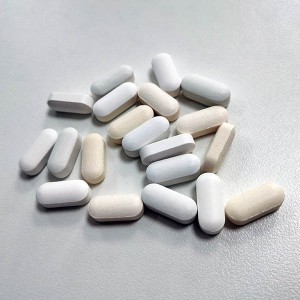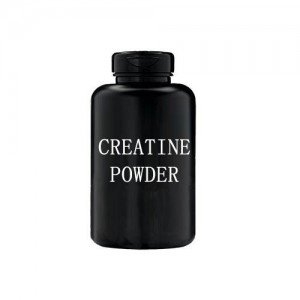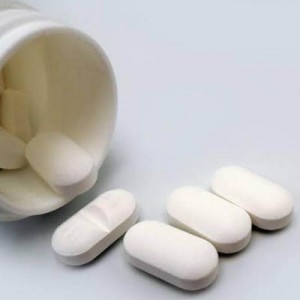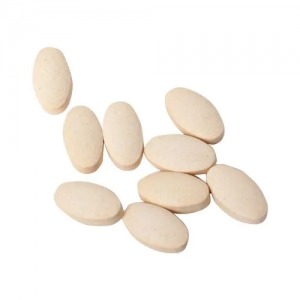| Basic Information | |
| Product name | Multi Mineral tablet |
| Other names | Mineral tablet,Calcium tablet, Calcium Magnesium tablet, Ca+Fe+Se+Zn Tablet, Calcium iron Zinc tablet... |
| Grade | Food grade |
| Appearance | As the customers' requirements
Round,Oval,Oblong,Triangle,Diamond and some special shapes are all available. |
| Shelf life | 2-3years, subject to store condition |
| Packing | Bulk, bottles, blister packs or customers' requirements |
| Condition | Preserve in tight containers,protected from light. |
Description
1. Calcium (Ca)
Calcium is mainly stored in bones and teeth, accounting for 99% of the total calcium content in the human body. The human body needs calcium to maintain the health of bones and teeth, and to transmit nerve impulses, Muscle contraction and blood coagulation in cells. Lack of calcium can lead to diseases such as osteoporosis, tooth loss, and heart disease.
2. Magnesium (Mg)
Magnesium is mainly stored in bones and soft tissues. Magnesium participates in the metabolic process of the body and promotes the progress of life activities. In addition, magnesium also plays important roles in balancing body water, regulating neuromuscular activity, and maintaining heart health. Lack of magnesium can lead to symptoms such as muscle spasms and arrhythmia.
3. Potassium (K)
Potassium is distributed in both bones and soft tissues. Potassium plays an important role in balancing body water, regulating heartbeat, maintaining acid-base balance, and participating in neuromuscular activities. It is an essential element for normal life activities in the human body. Lack of potassium can lead to symptoms such as muscle spasms and arrhythmia.
4. Phosphorus (P)
Phosphorus is an essential element for life activities. The human body needs phosphorus to synthesize important organic molecules such as DNA, RNA, and ATP. In addition, phosphorus also participates in the body's metabolic processes, promoting the progress of life activities. Lack of phosphorus can lead to symptoms such as anemia, muscle fatigue, and osteoporosis.
5. Sulfur (S)
Sulfur is mainly present in proteins. Sulfur participates in the metabolic process of the body and promotes the progress of life activities. In addition, sulfur also has important effects such as antioxidation, lowering cholesterol and blood sugar. Lack of sulfur can lead to symptoms such as dry skin and joint pain.
6. Iron (Fe)
Iron is mainly stored in the blood. Iron participates in the metabolic process of the body and promotes the progress of life activities. In addition, iron is the main component of hemoglobin and Myoglobin, which are responsible for distributing oxygen to all parts of the body. Lack of iron can lead to symptoms such as anemia, fatigue, and dizziness.
7. Zinc (Zn)
Zinc is mainly stored in muscles and bones. Zinc participates in the metabolic process of the body and promotes the progress of life activities. In addition, zinc also plays an important role in maintaining normal immune system function, promoting wound healing, and maintaining taste and smell. Lack of zinc can lead to symptoms such as decreased immune system function and slow wound healing.
8. Iodine (I)
Iodine is the raw material for synthesizing Thyroid hormones. Thyroid hormones is an important hormone that regulates the metabolism of the body and brain development. Lack of iodine can lead to symptoms such as decreased thyroid function and low mood.
The major mineral elements required by the human body have a significant impact on the health of the body, and their lack or excessive intake can have a negative impact on human health.
Lack of major mineral elements can lead to various diseases in the body, such as anemia, osteoporosis, decreased immune system function, and neurological disorders.
Function
Although the total amount of minerals in the human body is less than 5% of body weight and cannot provide energy, they cannot synthesize on their own in the body and must be supplied by the external environment, playing an important role in the physiological functions of human tissues. Minerals are important raw materials that make up the body's tissues, such as calcium, phosphorus, and magnesium, which are the main materials that make up bones and teeth. Minerals are also necessary to maintain acid-base balance and normal Osmotic pressure pressure. Some special physiological substances in the human body, such as hemoglobin and Thyroxine in the blood, need the participation of iron and iodine to synthesize. In the metabolic process of the human body, a certain amount of minerals are excreted from the body through feces, urine, sweat, hair, and other channels every day, so it must be supplemented through diet.
Applications
1. Insufficient intake
2. Poor dietary habits (picky eating, monotonous intake of food varieties, etc.)
3. Excessive exercise
4. Excessive labor intensity










